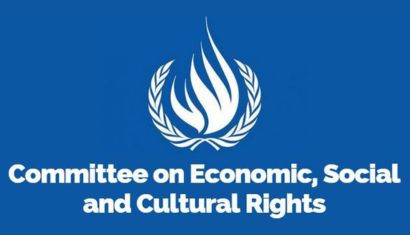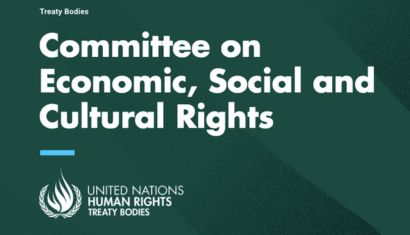
GI-ESCR and Partners Further Push the Tax Justice Agenda at the African Commission on Human and Peoples’ Rights
From 21 to 22 October 2024, we participated in the 81st Ordinary Session of the African Commission on Human and Peoples’ Rights in Banjul, The Gambia.
On 21 October, our Programme Officer for Africa, Aya Douabou, participated as a panellist in the Joint Colloquium on Realising Economic, Social and Cultural Rights in Africa, focusing on the Right to Education. Her presentation delved into the implications of debt and austerity measures as well as the strategies to monitor and implement economic, social and cultural rights (ESCR) in Africa. She emphasised that public services are the structures which make ESCR tangible. She underscored that public services are inadequately funded because of debt, as African countries spend most of their revenue on debt servicing rather than investing in public services adequately. In a debt situation, countries are obliged to borrow money from international financial institutions, which, in turn, impose austerity measures on borrowing countries through increased regressive taxes and public spending cuts on public services. Additionally, Africa grapples with illicit financial flows siphoning nearly 90 billion USD away yearly and tax incentives through which the continent loses more than 200 billion USD yearly, thus diverting crucial revenue that could have been used to fund public services and realise ESCR. She highlighted that African countries need to curb illicit financial flows and conduct a regular cost-benefit analysis of tax incentives to scrap the wasteful ones in order to capture more revenue and boost their domestic resource mobilisation. This approach would ultimately enable the sustainable financing of public services.
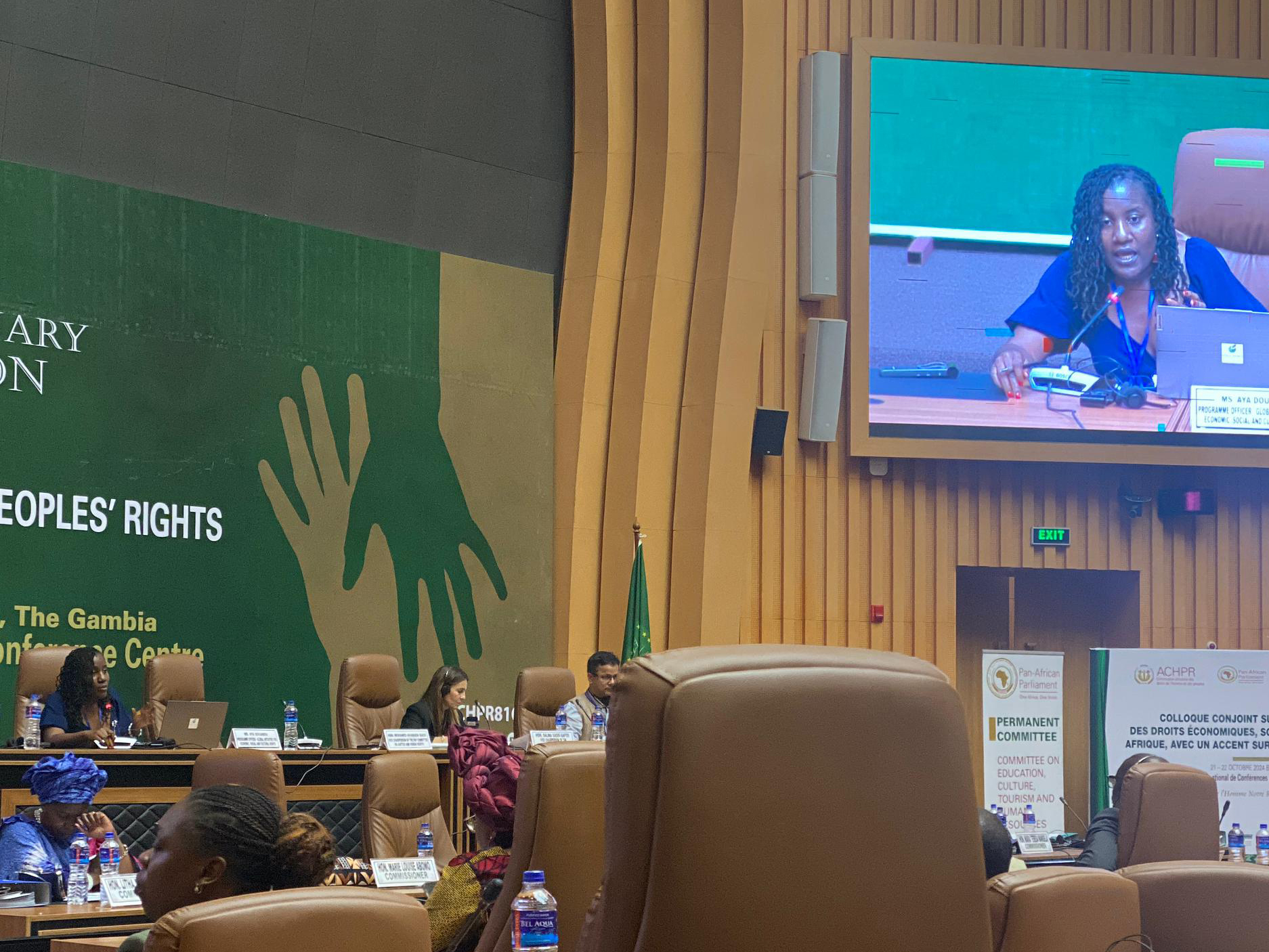
On 22 October, GI-ESCR, in collaboration with Tax Justice Network Africa and TaxEd Alliance/ActionAid, hosted a side event on Transforming Education Financing to Realise the Right to Education in Africa. The event was also co-sponsored by the Initiative for Social and Economic Rights (ISER, Uganda). It was attended by 17 participants from Kenya, Côte d’Ivoire, Senegal, Nigeria, South Africa, Zimbabwe, The Kingdom of Eswatini, Uganda and The Gambia.
Distinguished panellists were Hon. Commissioner Dr Litha Musyimi-Ogana (Kenya), Member of the African Commission on Human and Peoples’ Rights and Vice-Chairperson of the Working Group on Extractive Industries, Environment and Human Rights Violations; Chenai Mukumba (Zimbabwe), Executive Director of Tax Justice Network Africa; El Hadji Moussa Sarr (Senegal), Coordinator of the TaxEd Alliance at ActionAid Senegal; and Aya Douabou (Côte d’Ivoire), Programme Officer for Africa at GI-ESCR, acting as panellist and moderator.
Hon. Commissioner Dr Litha Musyimi-Ogana provided powerful opening remarks on the concept of aid evaporation, showing how Official Development Assistance (ODA) is not a sustainable way to fund Africa’s developmental needs, thus demonstrating the utmost importance of domestic resource mobilisation. She showcased examples of positive economic policies under one of Kenya’s former presidents.
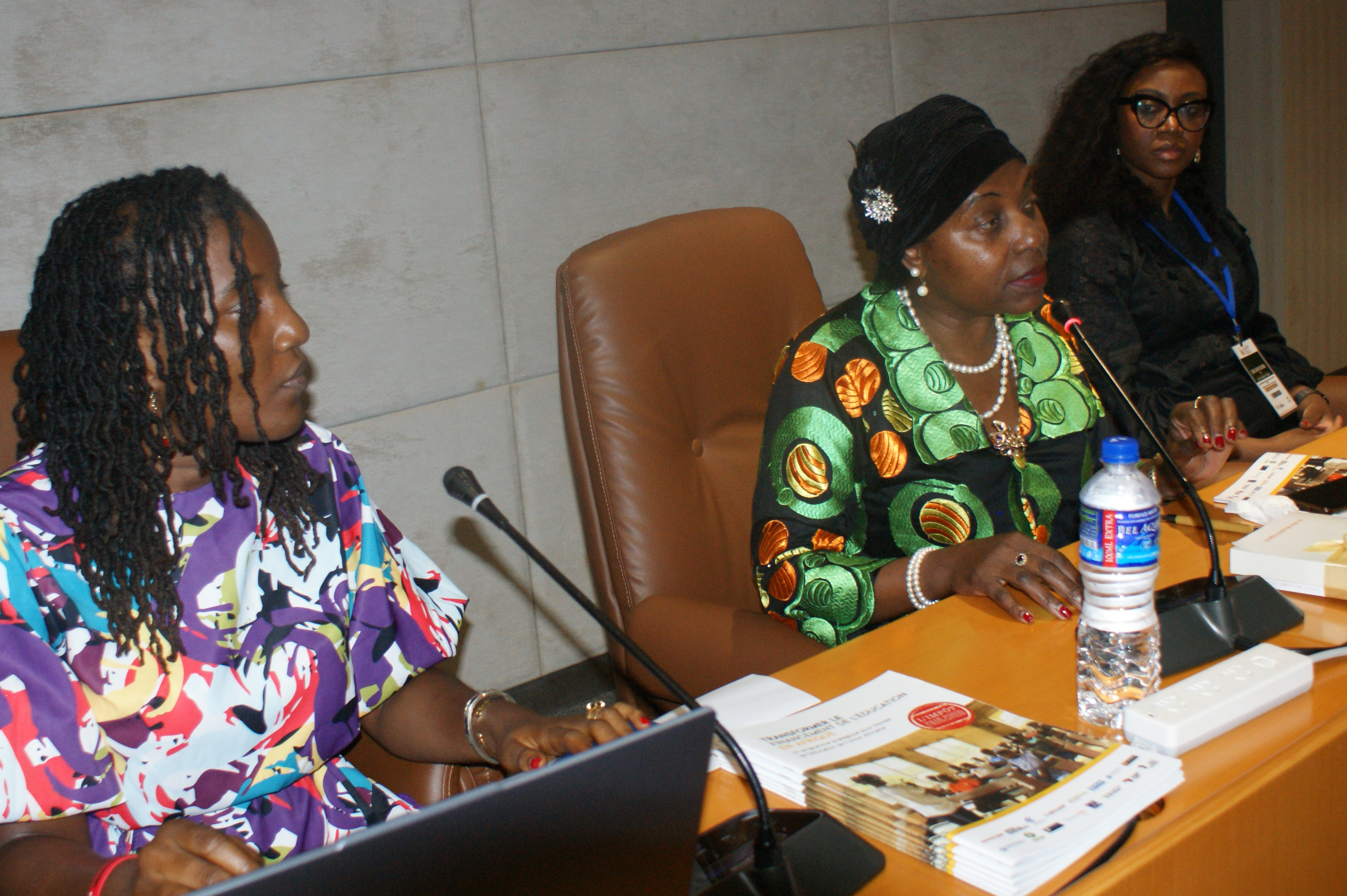
Her intervention was followed by El Hadji Moussa Sarr, who explained that if African Union countries increased their tax-to-GDP ratios by five percentage points (as deemed realistic in a key IMF paper), they could raise an additional USD 146 billion every year, according to the Transforming Education Financing report. If 20% of this $146 billion was allocated to education, in line with the widely accepted benchmark of the Education for All (EFA) Dakar Framework adopted in 2000 and reaffirmed in the Education 2030 Framework for Action, that would raise over $29 billion annually. This is sufficient to cover the costs of education for over 25 million primary school children every year. ‘At a time when we have more than 38 million out-of-school children, we can’t ignore the $146 billion/year that a 5% increase in the African countries’ tax-to-GDP ratio could bring. Taxes can pay for education!’, he said.
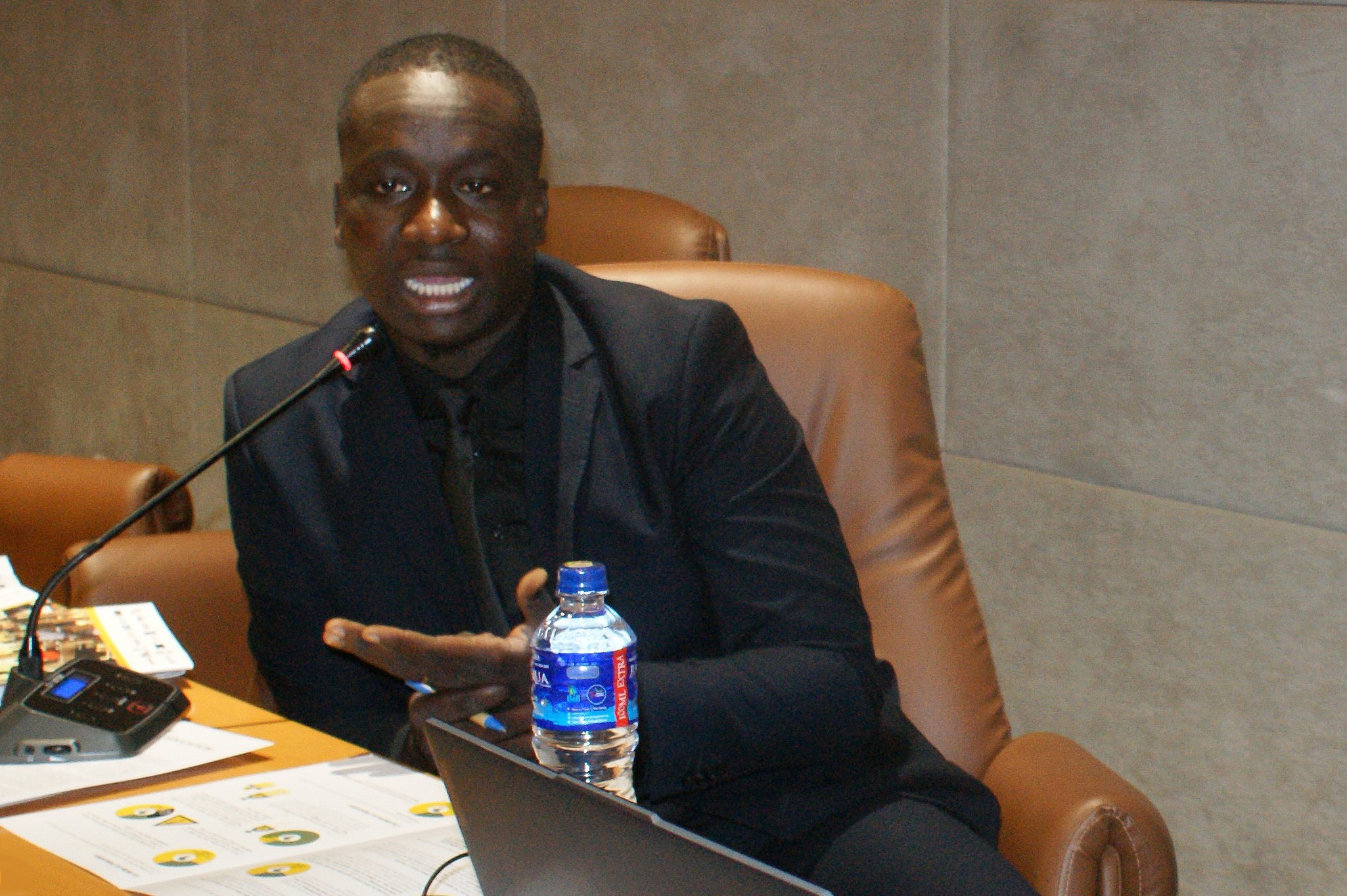
An overhaul of the international financial architecture is necessary for this solution to become a reality. The third panellist, Chenai Mukumba, gave an overview of the process around the UN Framework Convention on International Tax Cooperation and explained how it puts all states on an equal footing, including by considering the needs of developing countries in the design of global tax rules. She also underlined the Africa group’s role in leading this process at the UN level. 'The current global tax rules led by the OECD were shaped when we were still colonies. They, therefore, do not take our developmental needs into account. Through the UN Tax Convention process, African voices will be able to meaningfully influence the global tax agenda for the first time', she said. She explained that the UN Framework Convention on International Tax Cooperation provides a golden opportunity to effectively address tax-related illicit financial flows and boost African countries’ domestic resource mobilisation for the sustainable financing of public services, including education.
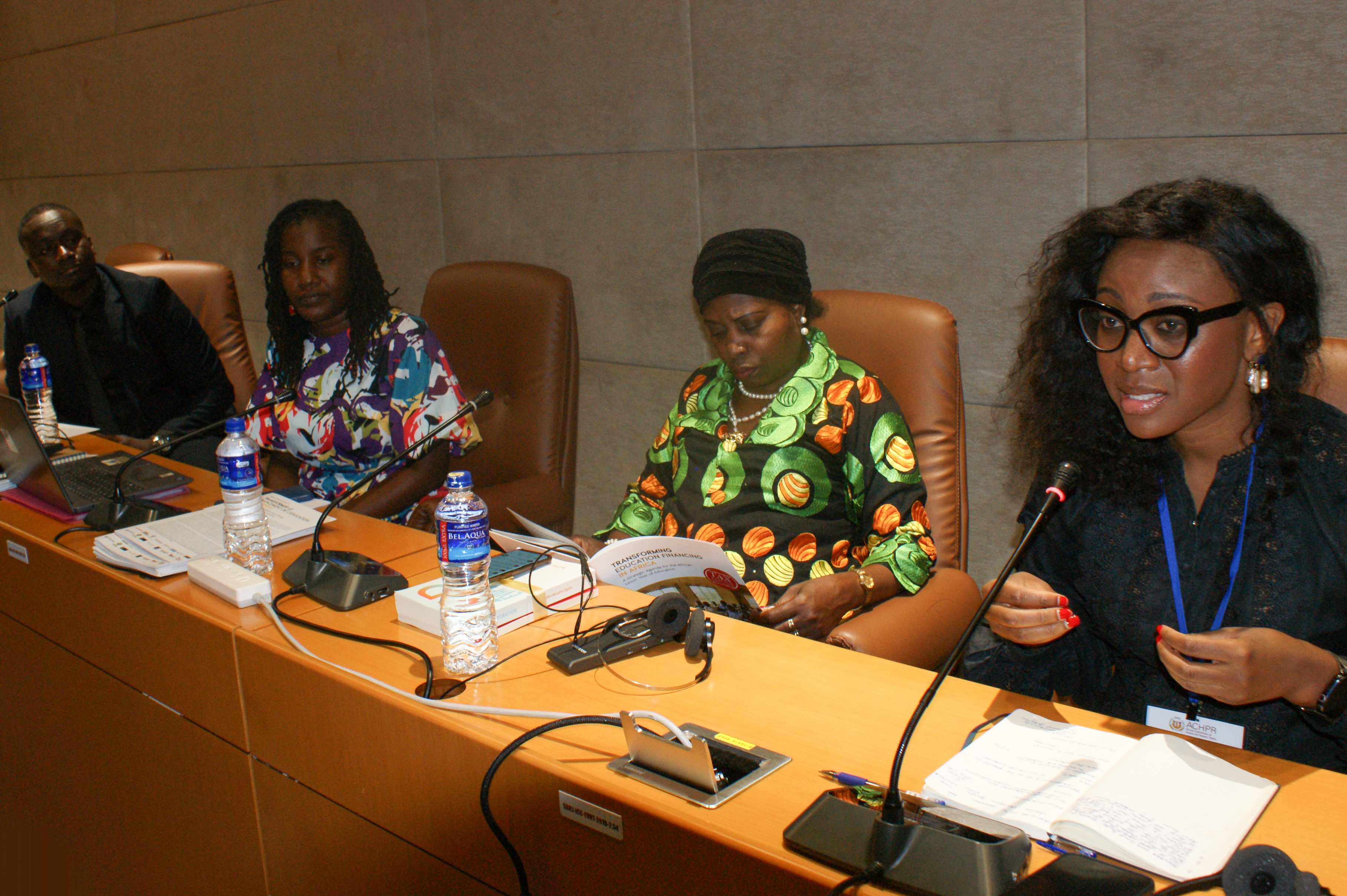
Finally, Aya Douabou reminded why tax justice is relevant to human rights and the social contract. She highlighted key provisions of the African Charter on Human and Peoples’ Rights, whose Article 1 enjoins States to take measures to give effect to the rights enshrined in the Charter, including the right to education. Additionally, Article 29 provides that every individual must pay taxes imposed by law in the interest of society. The ACHPR’s Principles and Guidelines on the implementation of ESC Rights stipulate that the duty to pay taxes imposed by Article 29 implies that ‘there is an obligation on the State to institute an effective and fair taxation system and a budgeting process that ensures that economic, social and cultural rights are prioritised in the distribution of resources’. Therefore, ‘tax is a human rights issue’, she said. She also highlighted that when public services are poorly funded, in combination with regressive tax policies, it can be detrimental to the social contract. A known example is how the austerity-motivated finance bill fuelled protests in Kenya.
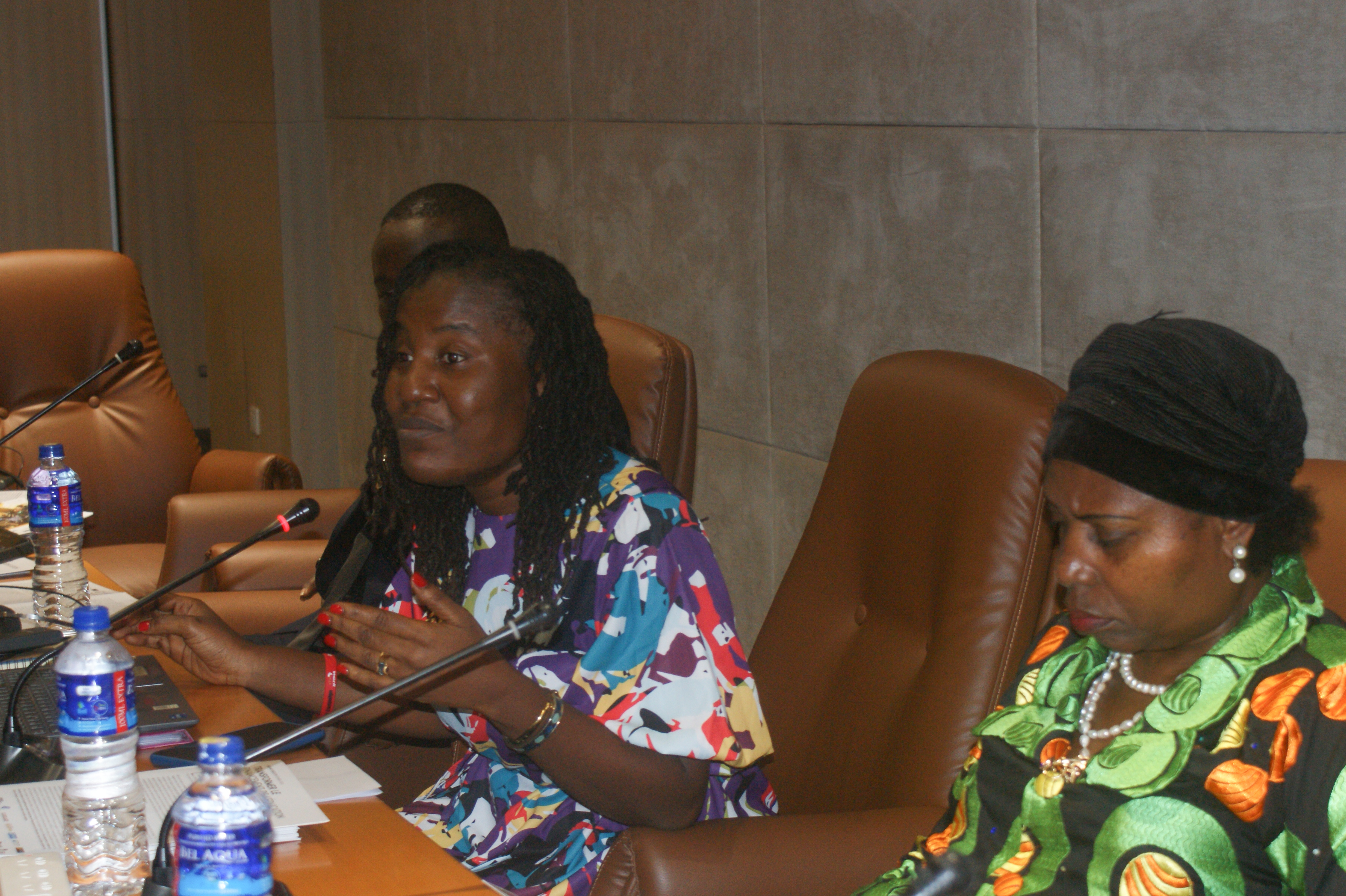
After the speakers’ interventions, the floor was open to questions and comments from the audience. At the end of the side event, participants understood the important nexus between tax policies and human rights through the financing of public services. Many also heard about the UN Tax Convention for the first time, which greatly sparked their interest in knowing more and raising further awareness about it in their home countries.

